Business Law: Contract Breach and Contractual Obligations Analysis
VerifiedAdded on 2021/05/31
|6
|1332
|103
Homework Assignment
AI Summary
This assignment delves into the realm of business law, specifically examining contractual disputes and obligations within the context of the Corporations Act 2001 (Cth). The first scenario explores a breach of contract by Michele, a party to an agreement with John and Motorbikes Pty Ltd, focusing on whether her actions constitute a breach under Section 121(1) and 121(2) of the Act. The analysis considers the elements of a valid contract and potential grounds for termination, referencing relevant case law such as Frumar vs. Guilfoyle Developments Pty Ltd. and Crown vs. Clarke. The second scenario involves George, the owner of a cake shop, who has signed a contract to sell the business to Cakes Pty Ltd. and now seeks to retract the agreement. The assessment investigates whether George remains bound by the contract, considering his capacity to contract, the absence of undue influence, and the understanding of the contract terms. The analysis again references relevant legal precedents, including Balfour v Balfour and ABN Amro Bank NV vs. Bathurst Regional Council, to determine the enforceability of the contract and George's obligations. This comprehensive analysis provides a clear understanding of contract law principles and their application in business settings.
1 out of 6
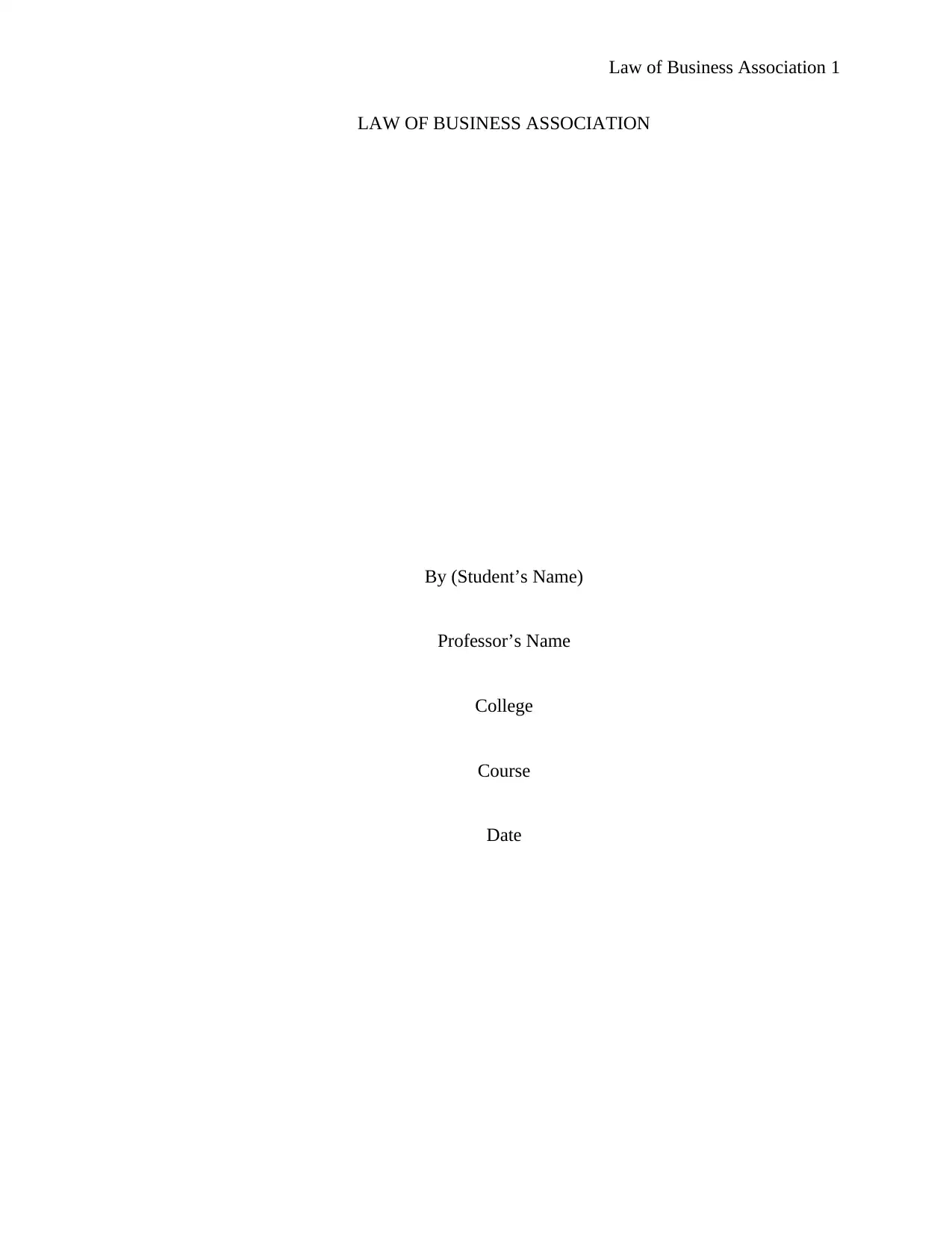
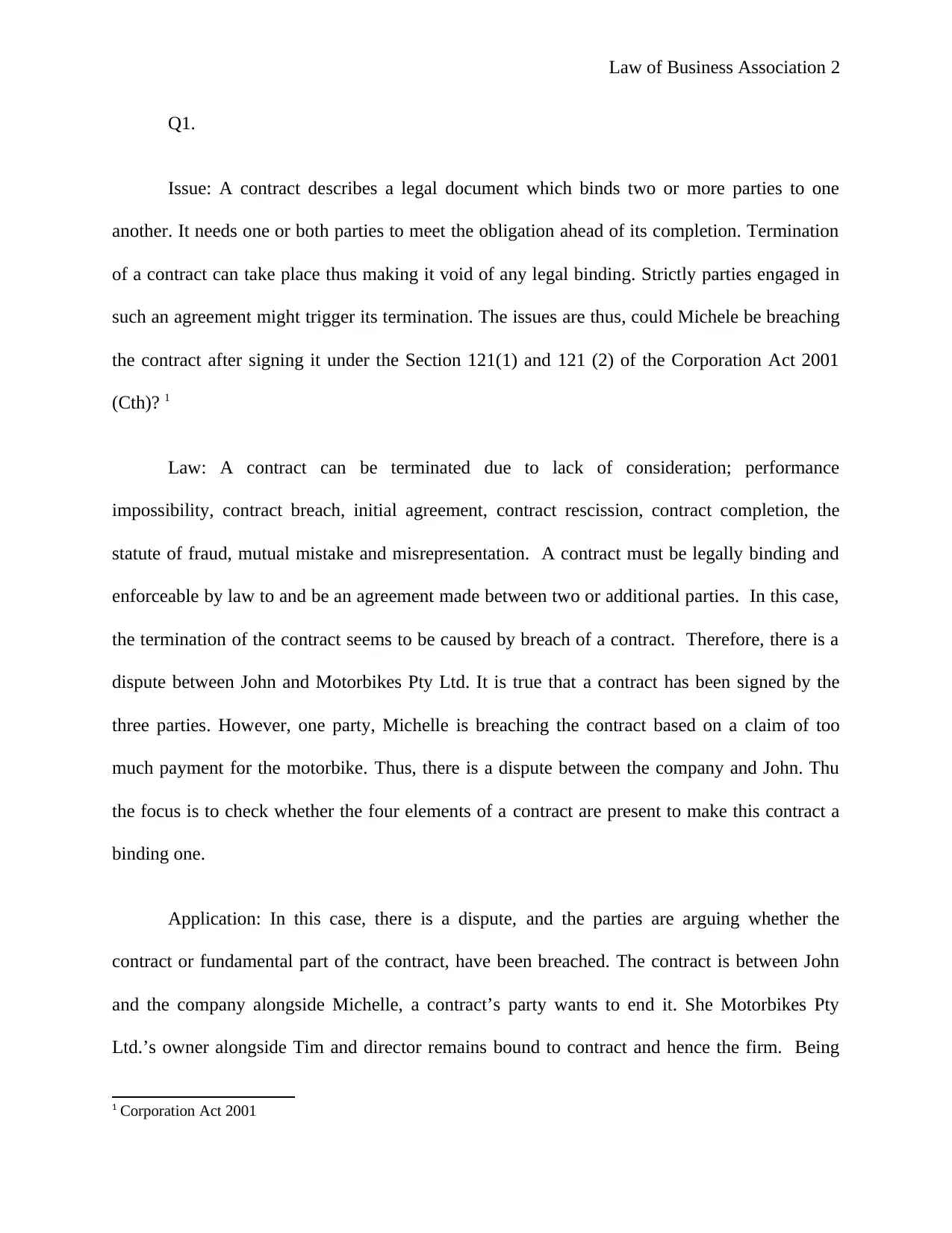
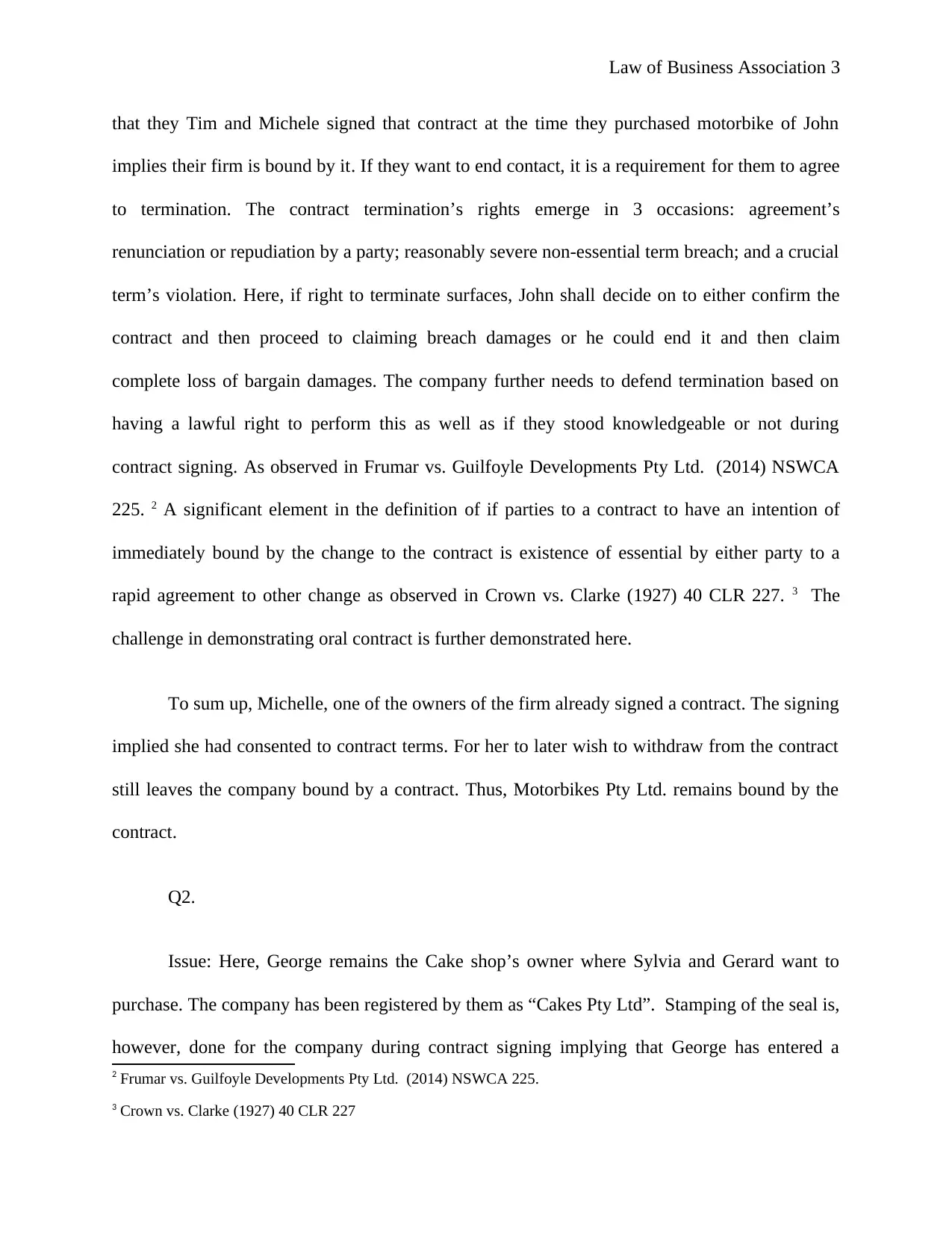

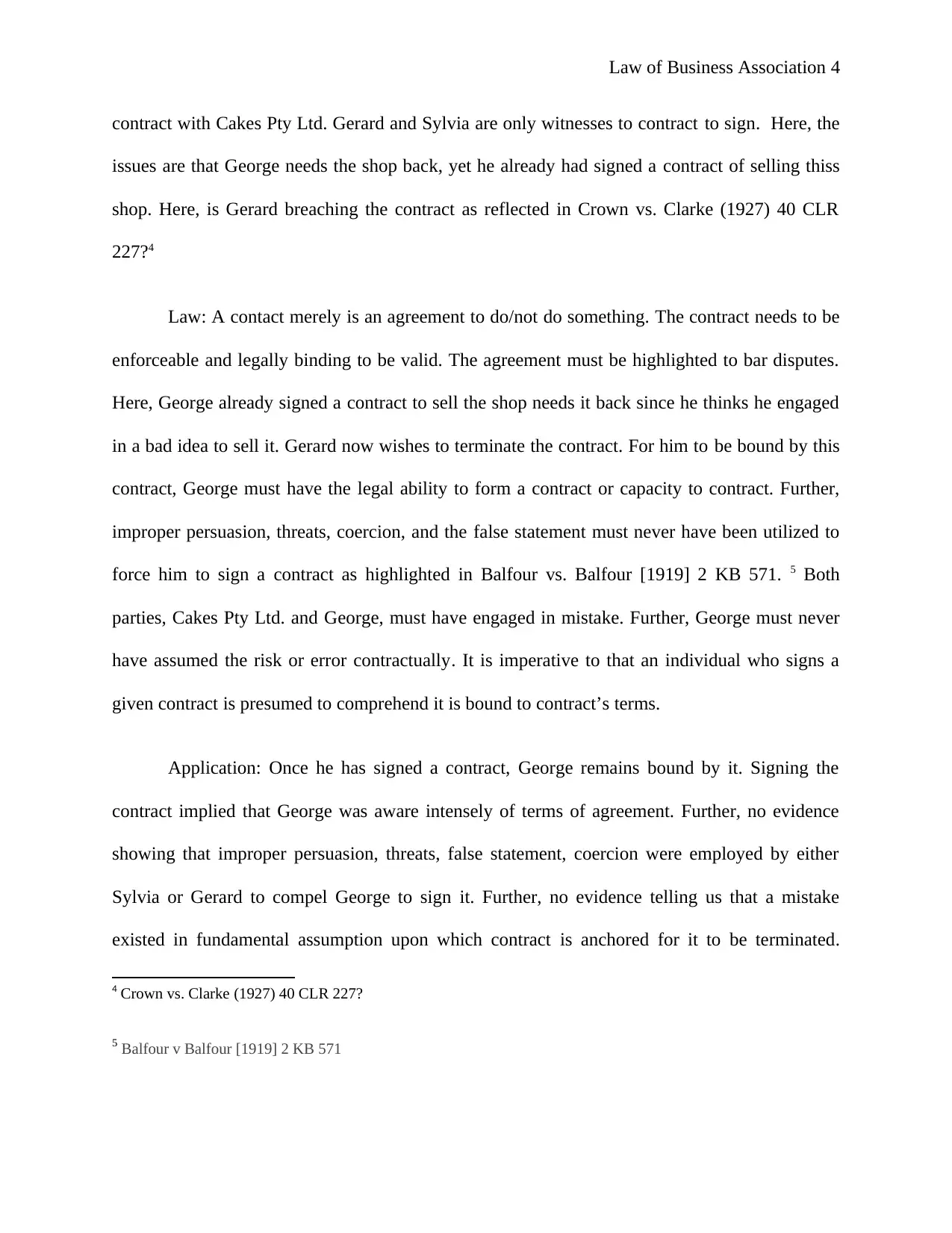
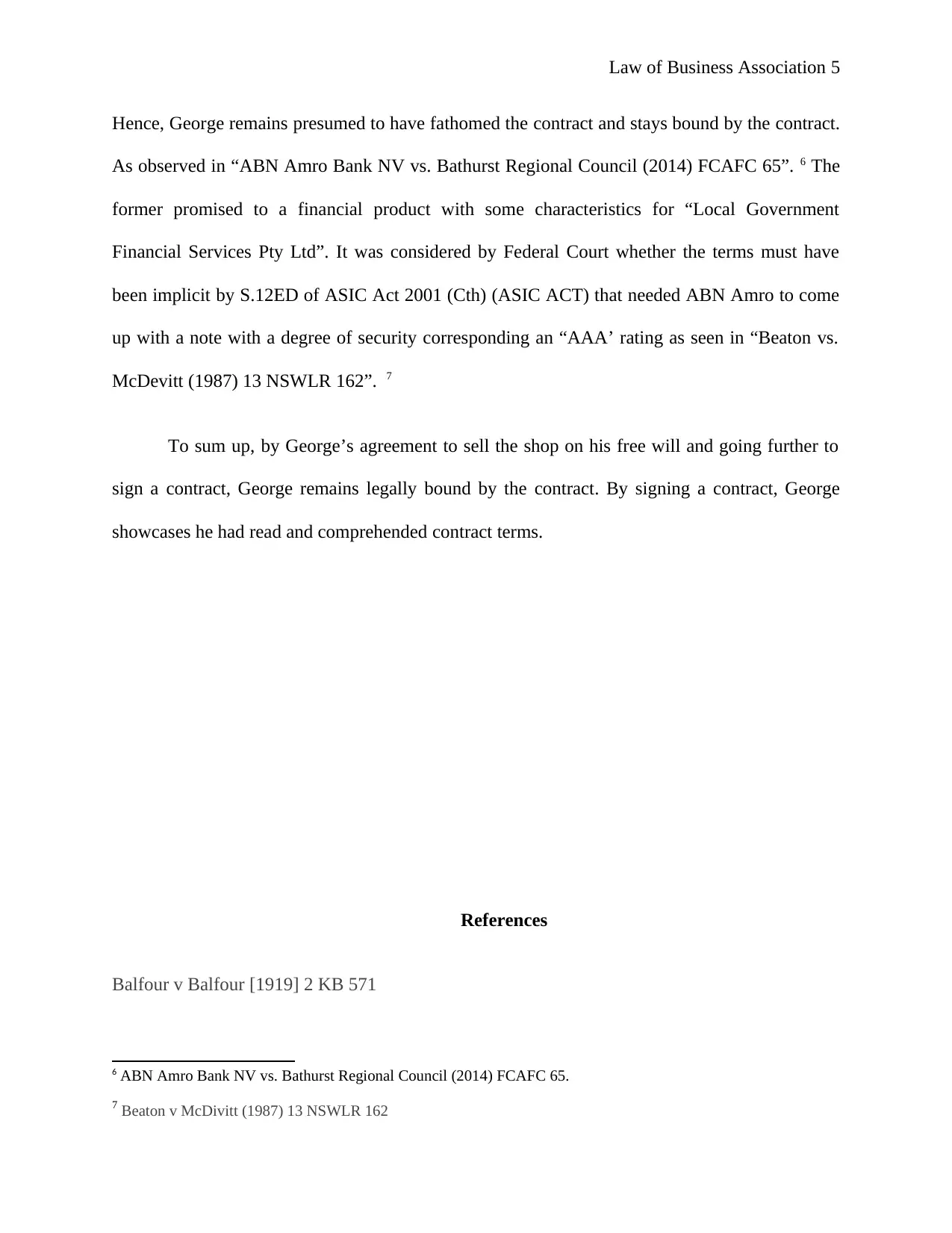







![[object Object]](/_next/static/media/star-bottom.7253800d.svg)